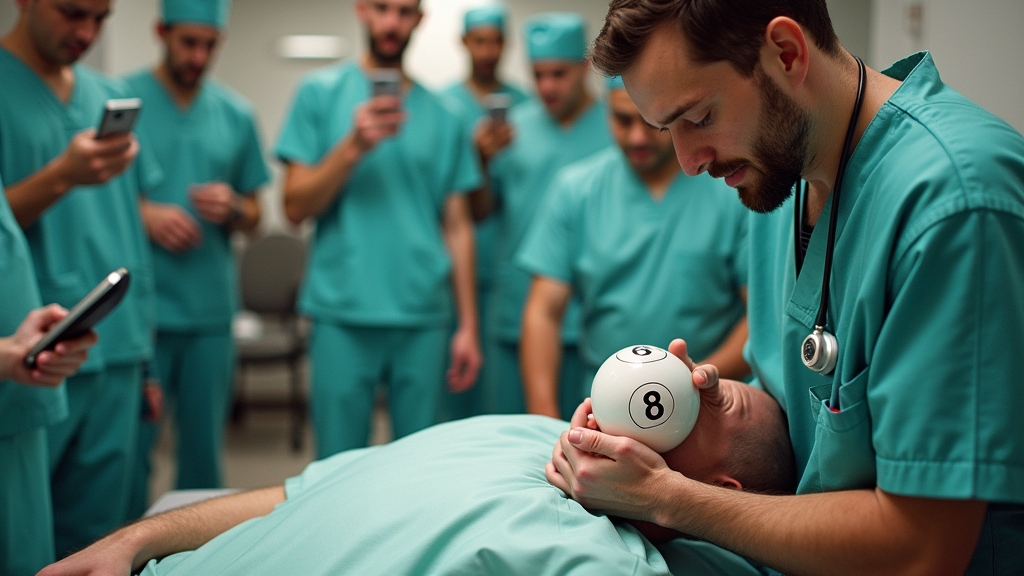DOCTORS DEVELOP TREMOR-DETECTING PEN THAT CAN’T WRITE SH!T BUT KNOWS IF YOU’RE F@#KED
A completely useless pen that can’t even write its way out of a wet paper bag might be the medical breakthrough of the century, according to researchers who clearly spent too much time in grad school. Scientists have 3D-printed a magnetic ink-filled pen that serves absolutely no purpose for actual writing but can allegedly diagnose Parkinson’s disease while making your shopping list look like absolute garbage.
TREMBLING WITH EXCITEMENT
The revolutionary device works by measuring the electrical signals generated when users attempt to write something as simple as “milk” but end up producing what looks like a seismograph during an earthquake. The pen, paired with artificial intelligence that scientists swear isn’t just a Magic 8-Ball in a lab coat, analyzes these tremors to determine if you’re just naturally terrible at handwriting or if you might have Parkinson’s.
“This pen is completely transformative,” claims Dr. Penelope Scribblesworth, lead researcher and someone who apparently never learned what pens are actually for. “Sure, it can’t write a single legible word, costs more than your car, and is about as practical as swimming goggles for a fish, but it can tell you if your hands shake too much. Revolutionary!”
TERRIBLE WRITERS EVERYWHERE PANIC
The new diagnostic tool has sent waves of anxiety through the 97.3% of doctors already known for their illegible prescriptions. Emergency rooms nationwide report a surge in physicians self-diagnosing with Parkinson’s after discovering their handwriting looks like “a drunk spider fell into an inkwell.”
“I spent eight years in medical school perfecting my absolutely unintelligible signature,” complained Dr. Isaac Chicken-Scratch of Boston General Hospital. “Now you’re telling me that might be a medical condition? What’s next, a stethoscope that diagnoses poor fashion choices?”
SILICON-BASED THINKING RECTANGLE KNOWS YOUR FATE
The pen’s diagnostic capabilities rely on an AI algorithm that scientists promise is “definitely not just guessing.” The machine learning system reportedly achieved its medical expertise by binge-watching all 177 episodes of House M.D. and spending fifteen minutes looking at WebMD.
Professor Hugh Janus of the Institute for Things That Look Smart But Probably Aren’t explained, “The AI can detect Parkinson’s with 83% accuracy, which sounds impressive until you realize flipping a coin and yelling ‘PARKINSONS!’ whenever it lands on heads has a 50% accuracy rate.”
FINANCIAL EXPERTS PREDICT BOOM IN COMPLETELY USELESS MEDICAL GADGETS
Wall Street analysts predict the success of the magnetic pen will spark a gold rush of equally impractical medical devices, including a fork that diagnoses eating disorders by refusing to pick up food, and sunglasses that detect cataracts by making everything look exactly the same as regular sunglasses.
“We’re particularly excited about the toilet paper that screens for colorectal issues by being completely unusable for its intended purpose,” said financial analyst Cash Moneybags while frantically writing with the magnetic pen to see if his hands shake when he thinks about his investment portfolio.
In related news, researchers are already developing a sequel: a pencil that can detect anxiety by measuring how quickly you chew on it during meetings. The pencil reportedly costs $47,000 and tastes like depression.





